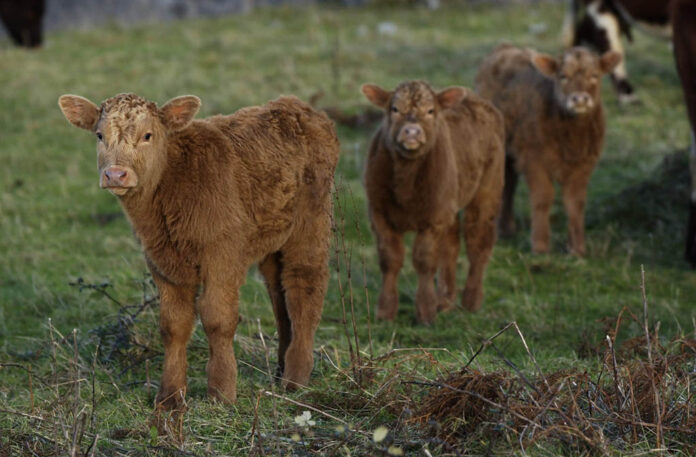CONSUMERS should be given an option of purchasing labelled grass-fed beef, according to a local farm leader.
Clare Beef Plan chairman, Joe Woulfe said there is a lack of traceability for some of the beef that is coming into Europe.
In an interview with the Clare Champion, Mr Woulfe pointed out grass-fed beef was much better for the environment than feedlot.
The Quilty suckler farmer expressed concern that 900,000 tonnes of poultry and 300,000 tonnes of beef is imported into the Europe from South America on an annual basis.
He warned that the amount of beef from South America will increase substantially if the Mercosur Deal is implemented.
“Chicken from China is now being sold in a well known Irish supermarket. When it comes to beef there is no differentiation between grass-fed and feedlot beef on the supermarket shelf.
“The carbon footprint of different methods of beef production needs to be looked at and should be reflected in the price,” he said.
Clare Beef Plan has described the EU Commission’s Farm to Fork strategy as “long on aspiration” but “short on detail”.
The group welcomed the commitment to support and monitor the operation of the Unfair Trading Directive as it is widely acknowledged that the primary producer is the least powerful player in the supply chain and an easy target for exploitation.
“The marketing of our top-quality beef as a run-of-the-mill commodity has helped to suppress prices. The proposal to promote Protected Geographical Indication (PGI) status for quality foods produced in the EU is very welcome.
This has been mooted previously for Irish suckler beef but there seems to have been little progress made, due perhaps to the failure to differentiate grass-fed animals from feedlot stock.
“Differentiating our high-quality, environmentally-friendly beef from inferior products, whether produced here or imported, is crucial to achieving a fair price,” the group outlined.
The group called for new legislation to underpin the implementation of the proposed Code of Conduct for Responsible Business and Marketing Practice, which could be used to properly promote and market suckler beef.
It expressed concern about the absence of concrete measures in the strategy to support food security and no commitment of pulling back from the “very damaging Mercusor deal”.
“This deal proposes to replace traceable beef produced to European standards with beef of uncertain origin and with unknown additives, produced for the EU on land cleared by burning the rainforests of the Amazon.
“The strategy uses the words ‘sustainable’ or ‘sustainability’ no fewer than 134 times, excluding annex and footnotes.
Yet there seems to be little consideration given to the sustainability of rural communities in Europe, the unspoken intention being apparently to allow other, poorer countries to carry the environmental cost of feeding Europe.
“The pursuit of the cheap food strategy seems to be continuing, regardless of the true cost and there seems to be little tangible commitment to the stated aim of raising global standards. Unfortunately, a cheap food policy only serves to devalue quality food in the eyes of consumers, contributing to a downward spiral in prices,” the group stated.
The group noted the global Covid-19 lockdown has clearly demonstrated that the real environmental culprit is not agriculture or livestock.
However, it pointed out the strategy fails to acknowledge the current environmental benefits of properly grazed grassland and outlines additional measures on farmers for carbon sequestration. “The starting point for improving carbon efficiency has to be the comprehensive measurement of existing grassland practices and an assessment of the methane cycle.
“The Commission is intent on promoting artificial or plant-based meat substitutes as an environmental measure. This ignores the fact that only a fraction of land is suitable for crop production and livestock grazing is the only way of producing food from most land.
“In addition, ruminants are an essential part of a balanced ecosystem and grazing grassland correctly maximises its carbon efficiency,” the group outlined.
It argued the lazy assumption that “going organic” must be better for the environment needs to be examined given that most non-cyclic emissions are produced by the consumption of fossil fuels, there are far more significant environmental factors in the food supply chain than whether production is or is not organic.
It noted organic produce does not command an adequate margin over conventional to justify the additional effort and reduced productivity.
Dan Danaher
East Clare correspondent, Dan Danaher is a journalism graduate of Rathmines and UL. He has won numerous awards for special investigations on health, justice, environment, and reports on news, agriculture, disability, mental health and community.




